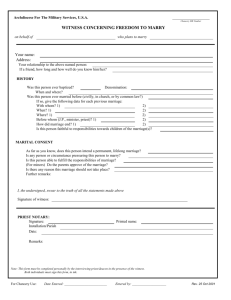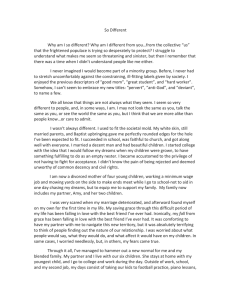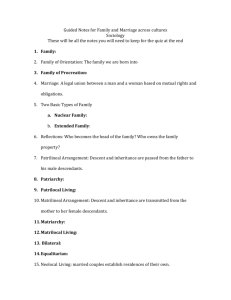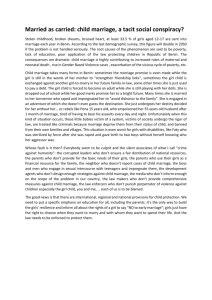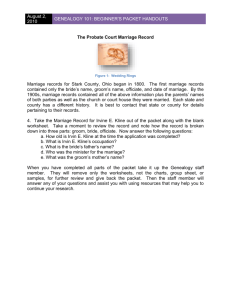Why Marriages Fail
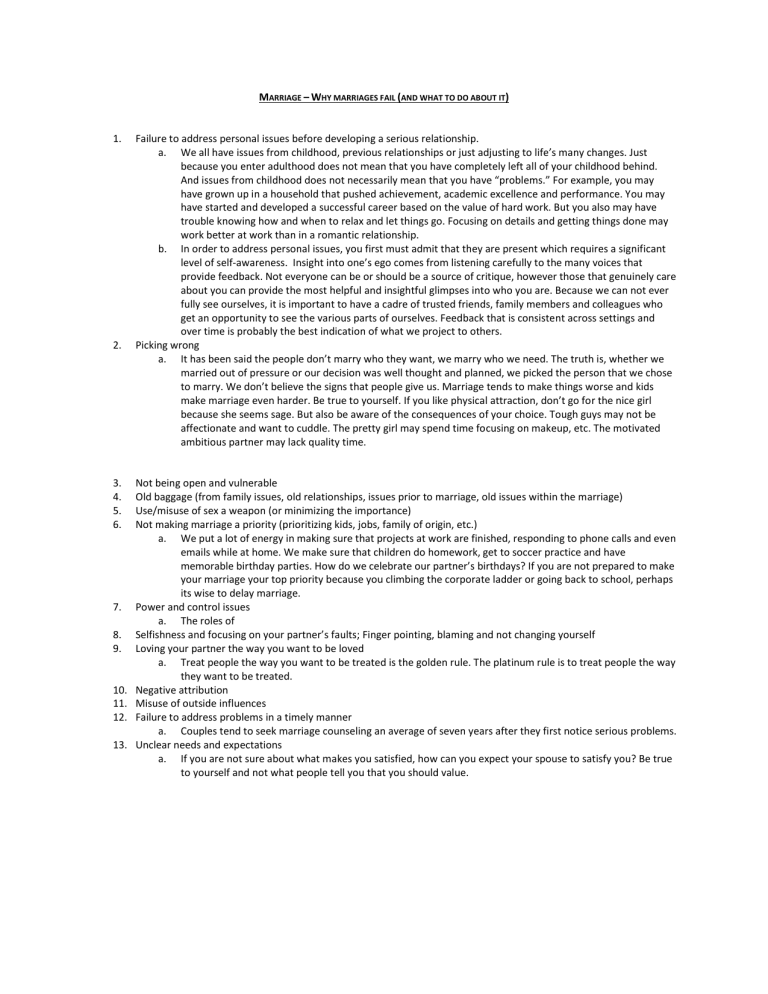
M ARRIAGE – W HY MARRIAGES FAIL ( AND WHAT TO DO ABOUT IT )
1.
Failure to address personal issues before developing a serious relationship. a.
We all have issues from childhood, previous relationships or just adjusting to life’s many changes. Just because you enter adulthood does not mean that you have completely left all of your childhood behind.
And issues from childhood does not necessarily mean that you have “problems.” For example, you may have grown up in a household that pushed achievement, academic excellence and performance. You may have started and developed a successful career based on the value of hard work. But you also may have trouble knowing how and when to relax and let things go. Focusing on details and getting things done may work better at work than in a romantic relationship. b.
In order to address personal issues, you first must admit that they are present which requires a significant level of self-awareness. Insight into one’s ego comes from listening carefully to the many voices that provide feedback. Not everyone can be or should be a source of critique, however those that genuinely care about you can provide the most helpful and insightful glimpses into who you are. Because we can not ever fully see ourselves, it is important to have a cadre of trusted friends, family members and colleagues who get an opportunity to see the various parts of ourselves. Feedback that is consistent across settings and over time is probably the best indication of what we project to others.
2.
Picking wrong a.
It has been said the people don’t marry who they want, we marry who we need. The truth is, whether we married out of pressure or our decision was well thought and planned, we picked the person that we chose to marry. We don’t believe the signs that people give us. Marriage tends to make things worse and kids make marriage even harder. Be true to yourself. If you like physical attraction, don’t go for the nice girl because she seems sage. But also be aware of the consequences of your choice. Tough guys may not be affectionate and want to cuddle. The pretty girl may spend time focusing on makeup, etc. The motivated ambitious partner may lack quality time.
3.
Not being open and vulnerable
4.
Old baggage (from family issues, old relationships, issues prior to marriage, old issues within the marriage)
5.
Use/misuse of sex a weapon (or minimizing the importance)
6.
Not making marriage a priority (prioritizing kids, jobs, family of origin, etc.) a.
We put a lot of energy in making sure that projects at work are finished, responding to phone calls and even emails while at home. We make sure that children do homework, get to soccer practice and have memorable birthday parties. How do we celebrate our partner’s birthdays? If you are not prepared to make your marriage your top priority because you climbing the corporate ladder or going back to school, perhaps its wise to delay marriage.
7.
Power and control issues a.
The roles of
8.
Selfishness and focusing on your partner’s faults; Finger pointing, blaming and not changing yourself
9.
Loving your partner the way you want to be loved a.
Treat people the way you want to be treated is the golden rule. The platinum rule is to treat people the way they want to be treated.
10.
Negative attribution
11.
Misuse of outside influences
12.
Failure to address problems in a timely manner a.
Couples tend to seek marriage counseling an average of seven years after they first notice serious problems.
13.
Unclear needs and expectations a.
If you are not sure about what makes you satisfied, how can you expect your spouse to satisfy you? Be true to yourself and not what people tell you that you should value.


